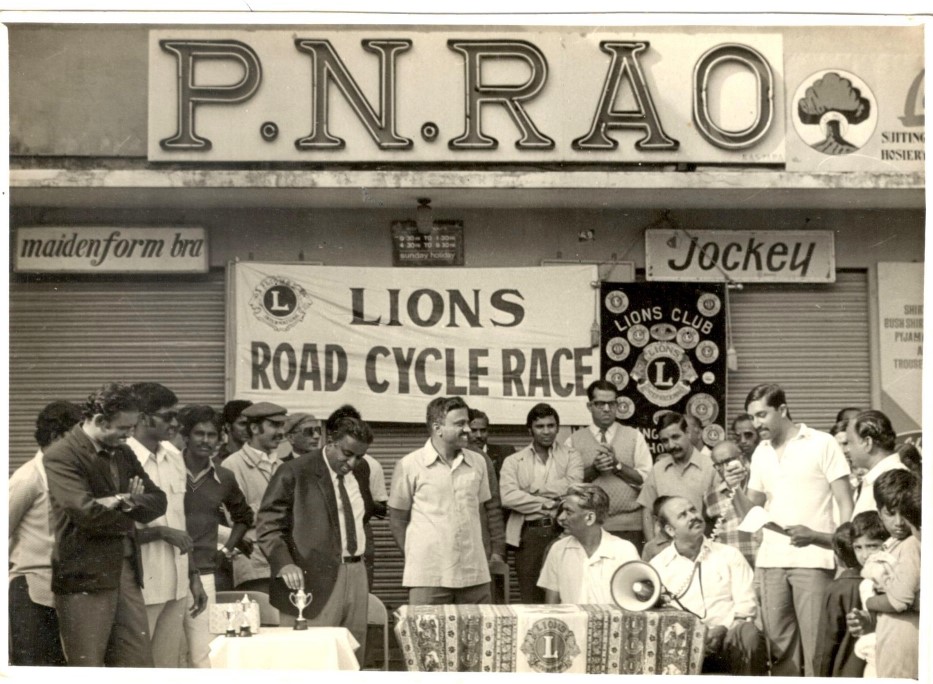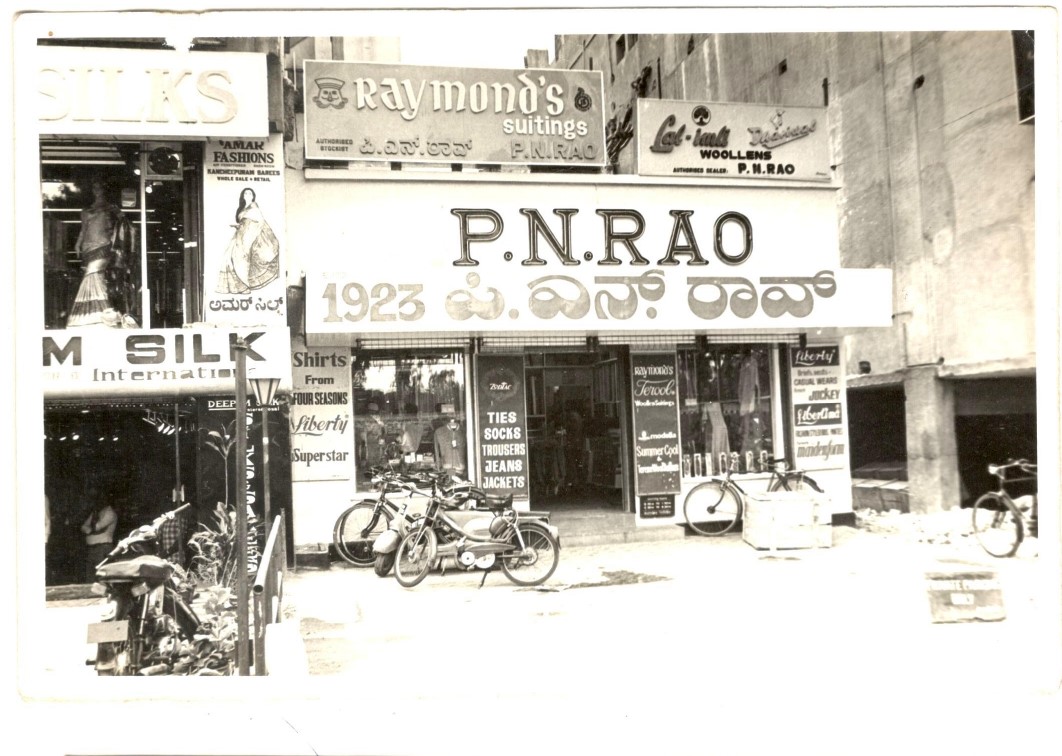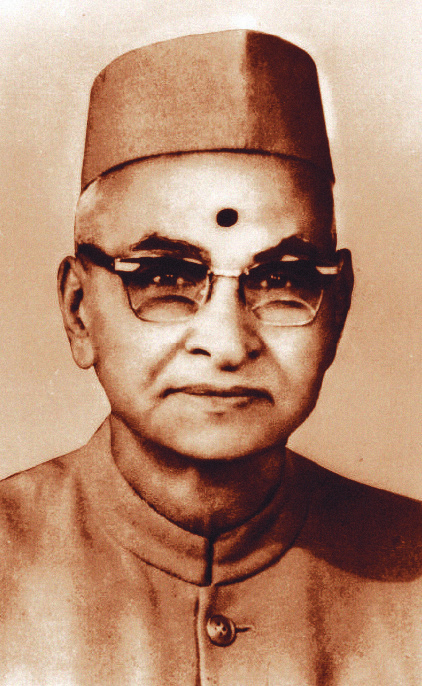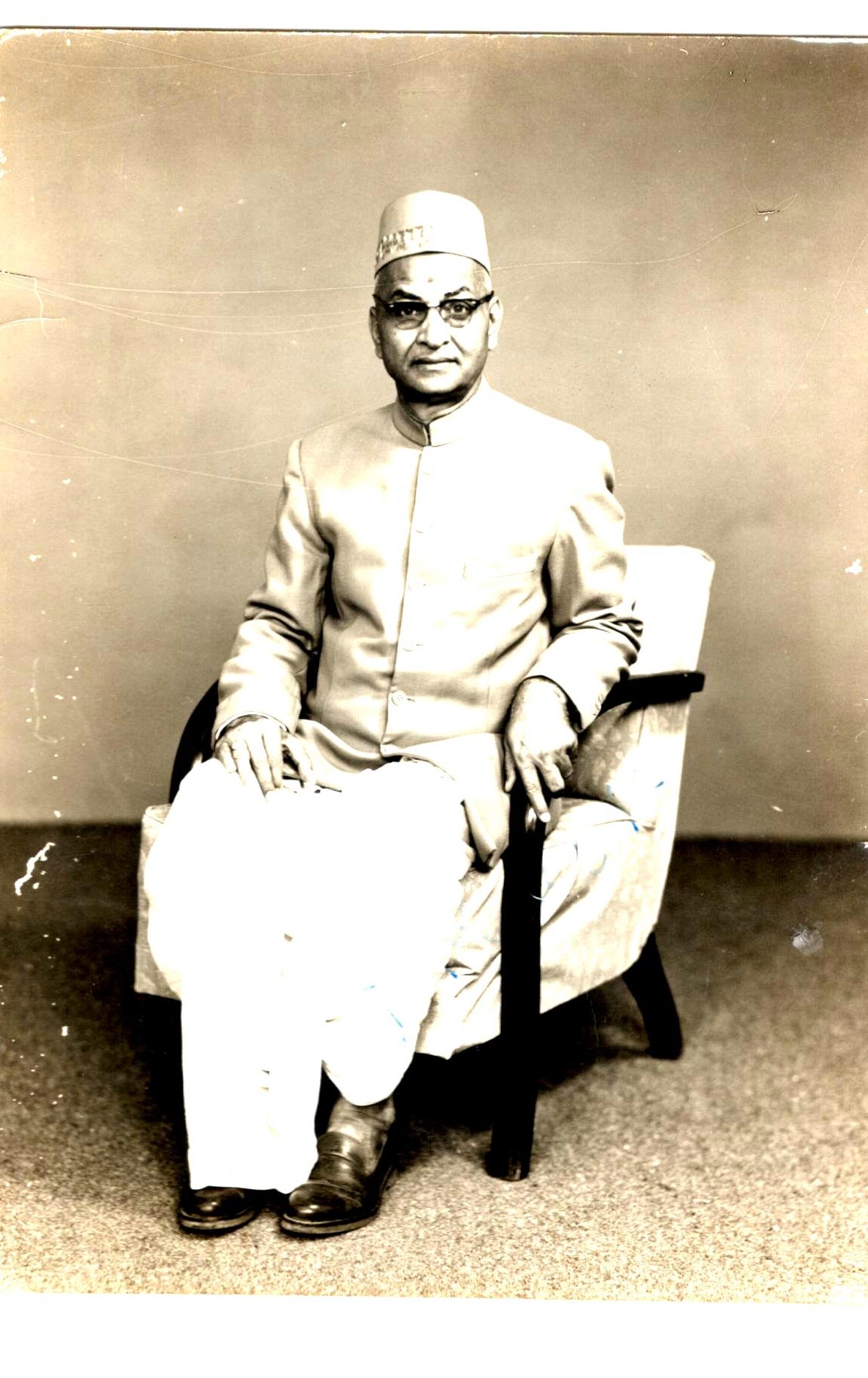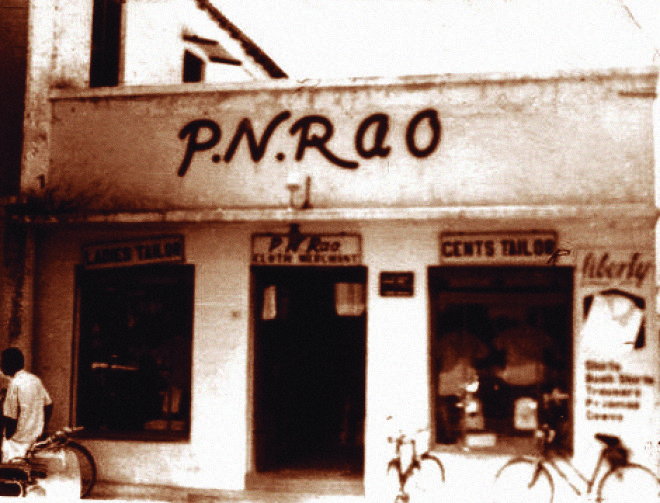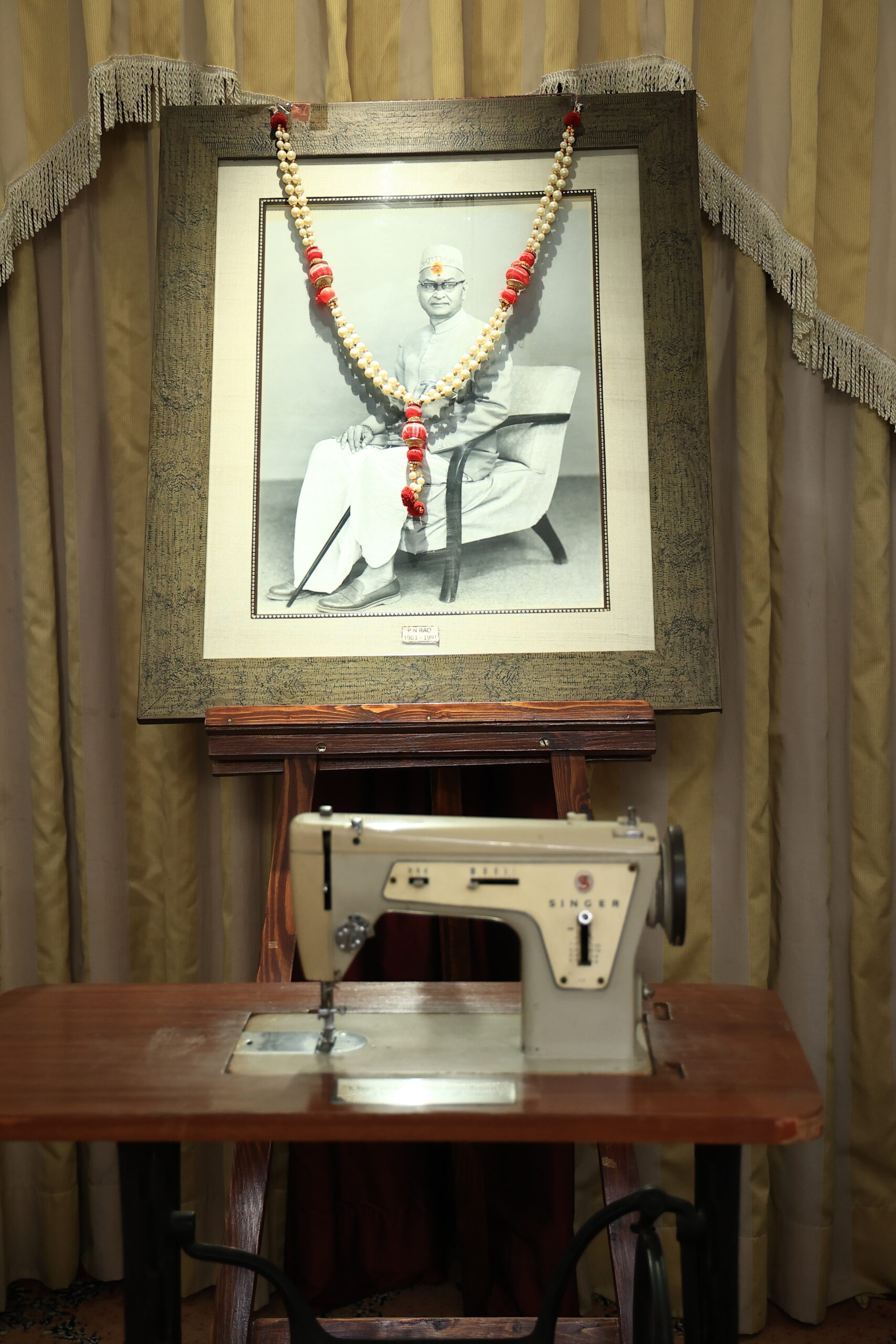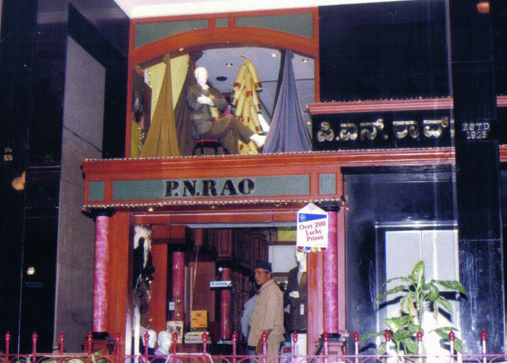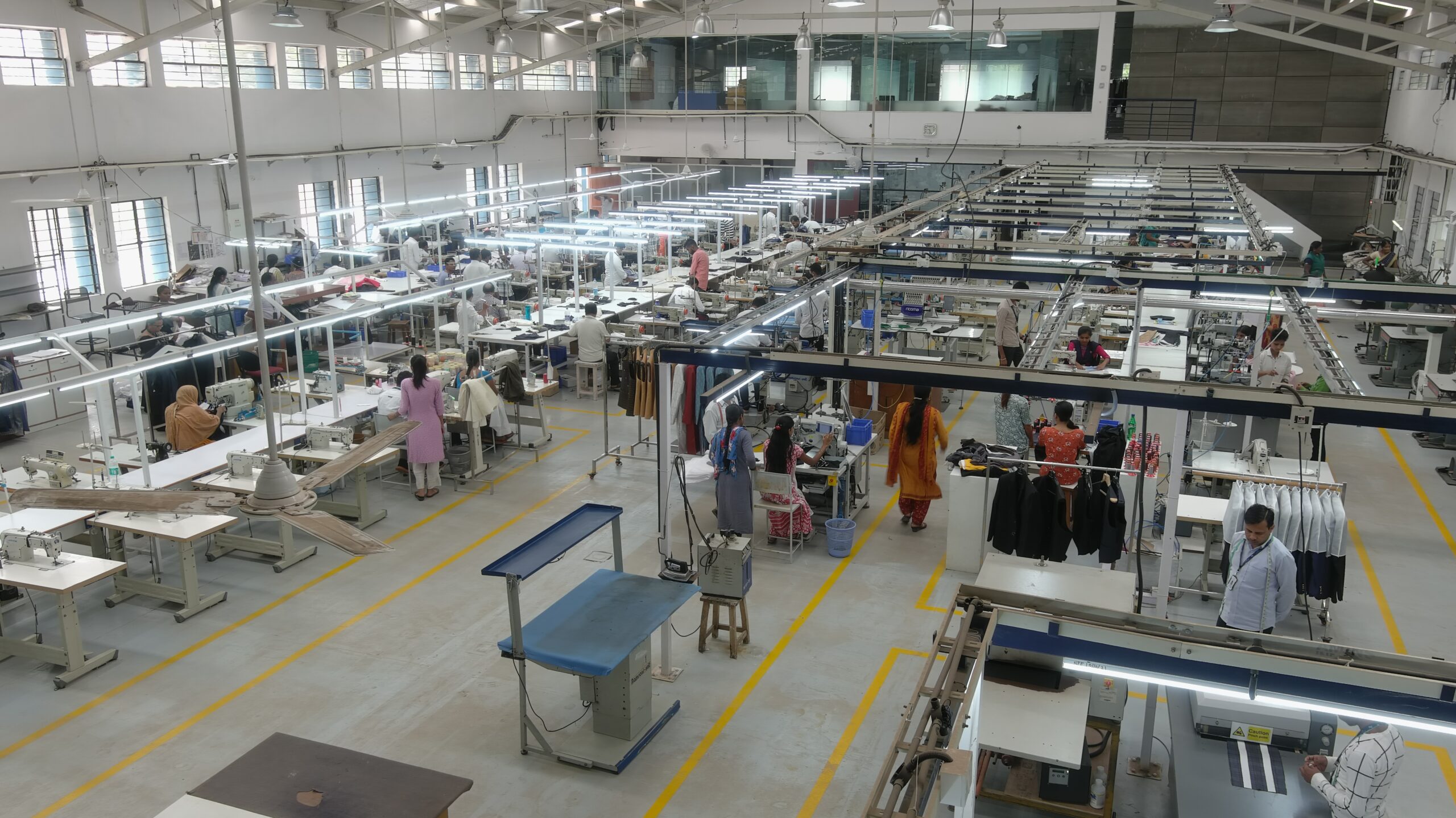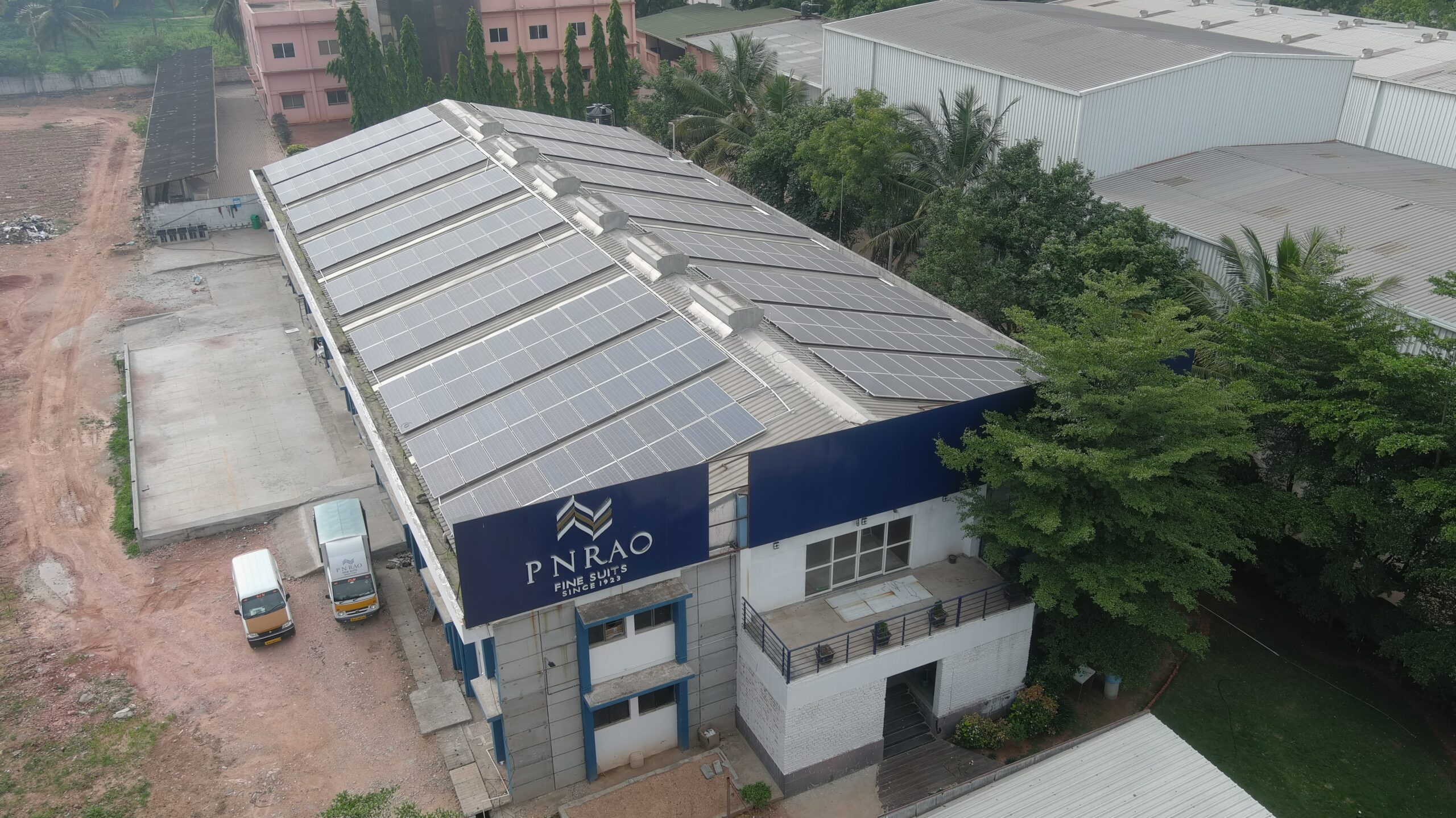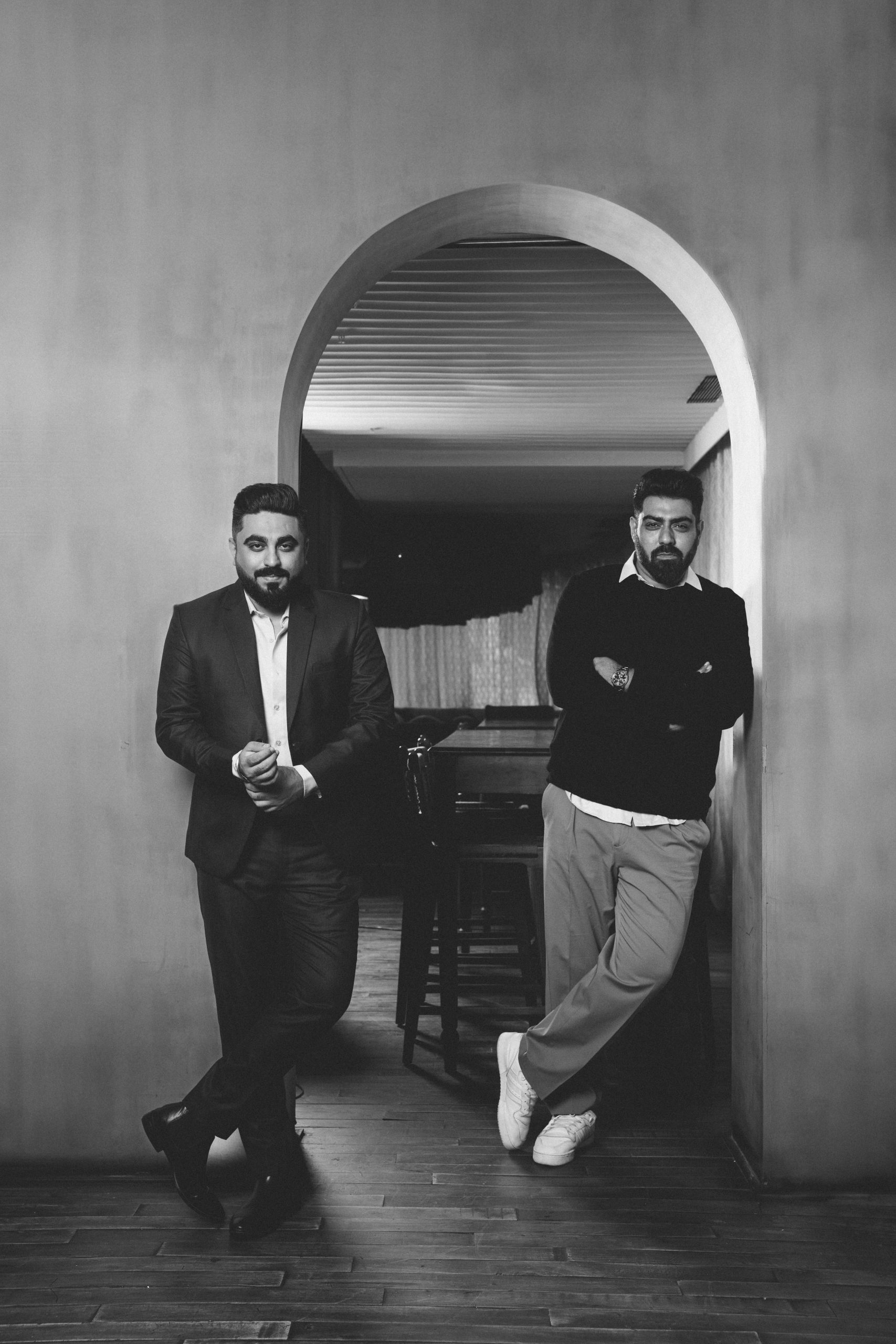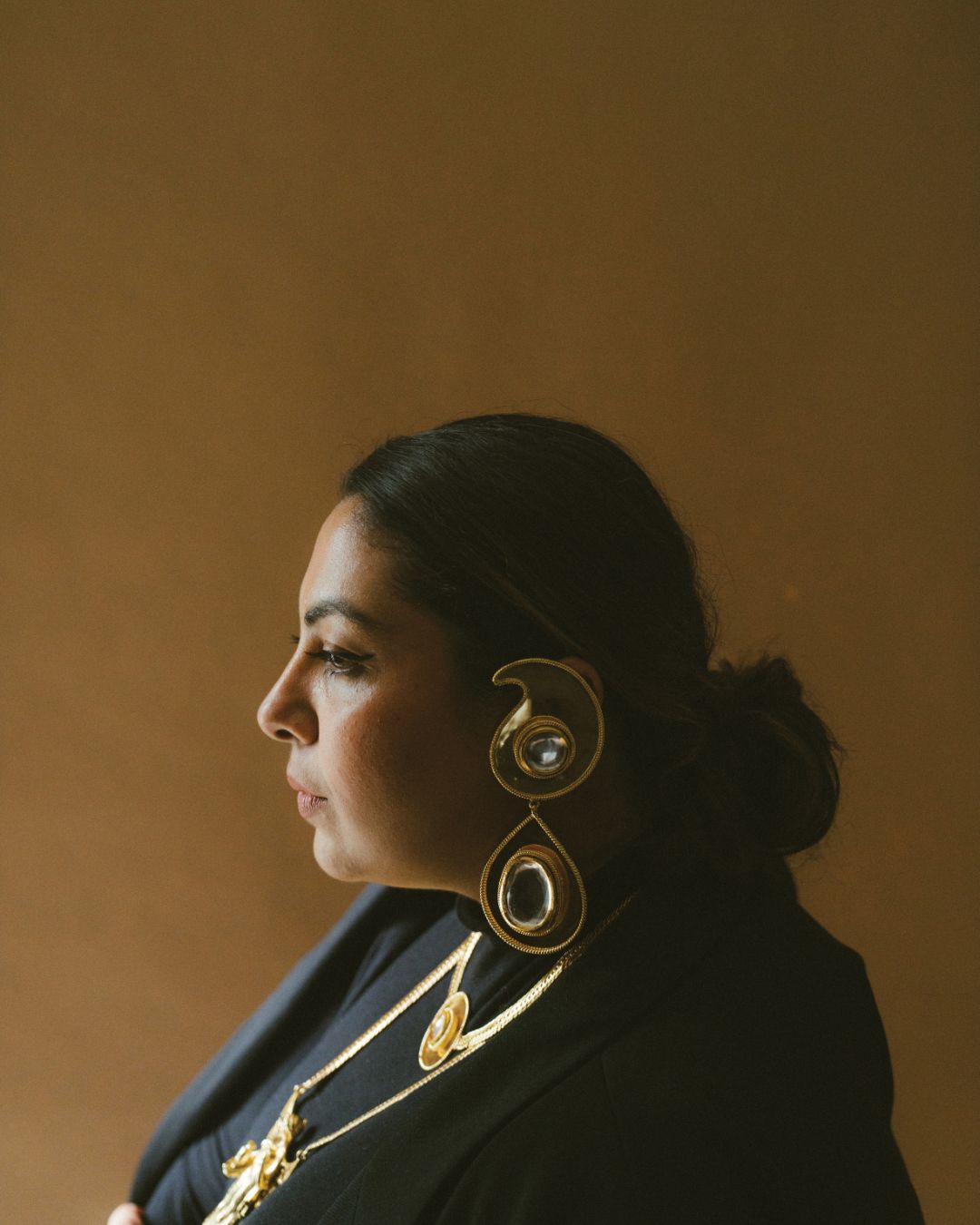From a single sewing machine in the congested by-lanes of Commercial Street to a prime spot on Bangalore’s MG Road, the 100-year old PN RAO family business is all about keeping bespoke tailoring viable and customers loyal.
So how does a modest tailoring business forge ahead and stay a bespoke brand in the world of fast fashion, prêt-à-porter and ready to wear garments – all while dealing with fierce competition from home grown and international brands, as well as internal family business crosscurrents.
An old PN RAO Store.
It began in 1905 when Pishe Narayan Rao lost his father Ranga Rao at a very young age due to the devastating plague that swept Bangalore. To support himself and his mother Lakshmi Bai, as a lad he apprenticed in one of the many tailoring shops that had sprung up around the Commercial Street area catering to the British Cantonment folks who needed an endless supply of menswear and ladies garments. Mostly run by his uncles and members of his community, he learnt the tailoring business the hard way – starting with the very basics like heating the heavy iron used by the tailors, making buttonholes and sewing on buttons
The Founder, Late. Shri Pishe Narayan Rao.
Apparently, irate tailors would not hesitate to singe the young lad with the same iron if it was not hot enough – but Pishe Rao was tenacious enough to stay the gruelling training and honed his skills through many natural disasters like drought and famine, and even World War I.
He eventually set up a tiny workspace, next to the famous Plaza theatre, on South Parade (now MG Road). It was a smart move that set him apart from the crowded labyrinth of Commercial Street and gave the fashionable set much better access to his services. Soon after he set up shop, the owner of Plaza theatre offered him a proper store that had become available for a monthly rent of Rs 25 – the year was 1923.
The facade of an old PN RAO store on South Parade (now MG Road).
100 years and four generations later, the flagship PN RAO store once #69, South Parade still stands on MG Road, in a city that is morphing and changing on a daily basis.
Cut to The Leela Palace, Bengaluru in February 2023 where famous Youtubers Hugo Jacomet and Sonya Glyn – creators of The Parisian Gentleman and Sartorial Talks – are in the process of understanding and documenting the PN RAO 100 year old story. Their hosts, Ketan and Naveen Pishe, cousins and the third generation of the Pishe Narayan Legacy are happy to talk about growing up in a tailor-centric home where soaking large rolls of canvas (used in men’s suits) in the family well every fortnight was part of their group family activities whether they liked it or not. Women were always encouraged to be a part of the business and sewing machines were an integral part of the family décor.
“It was common to see our grandfather, mother and aunts working at their machines at any time during the day. Tailoring was a natural activity at home. We also believed in absorbing family members into the business whenever possible. My grandfather hired his own brother-in-law as his master cutter. But many aspects of the business have to be managed by professionals. Over the years they become family in a certain sense and help to keep us grounded. Especially when we think of going overboard with expansions or big extravagant wedding celebrations!” says Naveen.
From the archives of the Late. Shri Pishe Narayan Rao and his tailoring machine.
A peek into family archives painstakingly documented in a coffee table book A Saga of Needle and Thread by Aliyeh Rizvi and her team show some interesting facts. #69 South Parade was nothing like the sleek wood and glass showroom it is today. Once rented, it was painstakingly furnished with second hand pieces from auctions and estate sales. And being a haberdashery as well, it was stocked with needles, threads buttons and ribbons to supply the neighbourhood tailors – a five paisa needle would usually be the first billing of the day.
PN RAO was indeed perfectly positioned for the boom in the early 1920’s, as memories of the war began to fade, and Bangalore cantonment became a place for parties, merriment and a seemingly endless appetite for fashion wear. Through word of mouth, PN RAO’s clientele steadily expanded and grew to encompass overseas clients who would stay at fancy hotels in town like The West End or The Shilton and send a horse drawn carriage to fetch the bespoke specialist, his senior tailors and assistants to fix up a fitting schedule and keep alterations on track. During high season the Raos would be working for 24 hours non- stop, in order to make their deliveries.
“Punctuality in our family is non- negotiable, a lesson well taught by Pishe Narayan Rao who won a coveted British military contract by arriving five minutes before the designated time of 6 AM. It was a game changer as the commandant who came to the gate and found my grandfather waiting there, invited him in and awarded him the contract. It was that contract, worth ten thousand rupees that enabled him to buy two properties on Commercial Street. That story has, over decades, become the family creed – people used to set their watches by my uncles morning schedule! We also learned that paying our suppliers on time meant we would get the best materials and fair business practices meant that we could build a loyal customer base, sometimes lasting generations,” says Naveen.
But the journey has not been easy. Two World Wars, devastating famines and plagues, the British leaving India and with styles and fashions rapidly changing, the Rao’s had to pivot and reinvent their family business practices many times.
The facade of an old PN RAO store on South Parade (now MG Road).
“We originally started off making fashionable European gowns and then switched over to menswear as most British ladies left India Post-Independence. My grandfather taught us the importance of saving and preparing for market disruptions. Back then master tailors created patterns that were trade secrets. Several fittings were essential and it was fine, painstaking work. The invention of the sewing machine was a game changer since it was the army that were the precursors to large scale ready-to-wear clothes and both army and civilian clothes had to be made in large numbers at low costs,“ says Naveen.
However, family businesses almost always come with their own challenges and need sensitive, yet practical checks and balances that can keep all stakeholders happy. For example when Machender Pishe wanted to expand into ready-mades, his father thought it was a terrible idea. It took a lot of tact and persuasion to get it started.
“By getting stock in on consignment, the risk was mitigated and when a whole new customer base opened up. But we had to prove that we were not sabotaging our own tailoring business first,” says Naveen.
But how do family businesses survive conflict and differing opinions.
“I used to be the go between my dad and my uncle for ages, whenever they had a tiff. There was a point when I thought the entire business would split up over small issues that would easily get blown out of proportion. It was very traumatic emotionally. I made one last attempt to salvage the situation by reaching out to my uncle. It actually worked pretty well and we decided that the best way to avoid a crisis in the future was by setting up very clear guidelines. We consulted a professional, drew up a proper family constitution and by holding regular meetings involving all the stakeholders in the family, reiterating our mission statement, we were able to ensure that conflicts and ego clashes are managed effectively. When there are proper processes in place and no one operates in silos, everyone feels secure, respected, seen and heard.”
Interiors of a present day PN RAO Manufacturing Facility
Now celebrating 100 years, the PN RAO clan are still looking to grow and expand across cities, countries and verticals, with the fourth generation gearing up to take the legacy forward.
”If you get complacent thinking that you have already achieved your best, you are finished. There is always scope for improving customer experience and products. For us, it’s the conversations we have with our clients that matter most.” concludes Naveen.
Words by Jackie Pinto.
Photographs courtesy of the PN RAO Archives.
